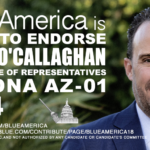Another FLA. Power Grab
Florida Blues
From the St. Pete Times:
You expect Florida lawmakers to play politics with nearly every issue, though not with the very foundation of democracy. Yet here they go again. It's not just the Legislature that is tinkering with your right to vote, but Secretary of State Glenda Hood is leading the way. Under Hood's suggested rewrite of state law, guess who would end up with most of the power to make decisions affecting your ability to register and have your vote counted? Not the supervisors of elections you put in office to do the job. It would be Hood, who is appointed by the governor and doesn't answer to the electorate.
A key bill states that if the secretary of state spots a "lack of uniformity" in election procedures, she would "have the authority to issue a statement of interpretation of the election laws to the supervisors of elections, the county canvassing boards, or any other officials performing election-related duties." Not only would the secretary's decision be "binding," but the supervisors would be constrained in how they could appeal it and the public would be cut out entirely. That situation could lead to "extremely partisan" oversight, saidKurt Browning, elections chief in Pasco County and chairman of the supervisors' legislative committee. "The governor becomes the Florida supervisor of elections because the secretary of state works for him," he said. The state's supervisors don't support that provision, and with good reason. It could deny them the ability to fulfill their duty to voters.
Here is a frequently cited example of how such legislation could affect an outcome: In the 2004 presidential contest, thousands of Floridians who registered to vote faced disqualification because they failed to check a box acknowledging their citizenship. Yet they had signed an oath that stated "I am a U.S. citizen." Hood said voters had to check the box and sign the oath to be eligible (and many were denied because of that), but some supervisors disagreed, saying the oath alone was legally sufficient. Hood's interpretation was seen by some as politically motivated, figuring that the Republican secretary of state wanted to stifle a spirited registration drive by Democratic groups. Certainly the presumption should usually favor the right of a voter to cast a ballot, but when there is a legitimate dispute it deserves a full and fair hearing. This legislation would deny such a remedy.
First, it exempts the secretary from the law that gives residents the right to challenge state rules. It also says that the secretary's directives are "binding" and that supervisors can challenge them only through the 1st District Court of Appeals in Tallahassee. Even then, the court can set aside the secretary's decisions only if they are found to be "clearly erroneous or inconsistent with prior statements," and the burden of proof is on the supervisors, not the secretary. If all of that doesn't have a sufficient chilling effect on supervisors, the secretary can also fine them $5,000 of their personal money for disobeying her. Supervisors say they don't want to have to defer to Tallahassee when local voters have a question about their rights. Such power "could be misused very easily," said Susan Gill, Citrus County supervisor of elections and president-elect of the state association. "We need some sort of due process to it." This isn't a partisan issue for the supervisors - both Browning and Gill are Republicans - but one of fairness, transparency and accountability. Hood's office says the secretary is just trying to impose order on a messy voting process. But it is the supervisors who are elected to do that job, and while the secretary of state can assist them, any substantive disputes should be resolved by a neutral mediator where both parties have equal standing. Kurt Browning, elections chief in Pasco County and chairman of the supervisors' legislative committee. "The governor becomes the Florida supervisor of elections because the secretary of state works for him," he said. The state's supervisors don't support that provision, and with good reason. It could deny them the ability to fulfill their duty to voters.
Here is a frequently cited example of how such legislation could affect an outcome: In the 2004 presidential contest, thousands of Floridians who registered to vote faced disqualification because they failed to check a box acknowledging their citizenship. Yet they had signed an oath that stated "I am a U.S. citizen." Hood said voters had to check the box and sign the oath to be eligible (and many were denied because of that), but some supervisors disagreed, saying the oath alone was legally sufficient. Hood's interpretation was seen by some as politically motivated, figuring that the Republican secretary of state wanted to stifle a spirited registration drive by Democratic groups. Certainly the presumption should usually favor the right of a voter to cast a ballot, but when there is a legitimate dispute it deserves a full and fair hearing. This legislation would deny such a remedy.
First, it exempts the secretary from the law that gives residents the right to challenge state rules. It also says that the secretary's directives are "binding" and that supervisors can challenge them only through the 1st District Court of Appeals in Tallahassee. Even then, the court can set aside the secretary's decisions only if they are found to be "clearly erroneous or inconsistent with prior statements," and the burden of proof is on the supervisors, not the secretary. If all of that doesn't have a sufficient chilling effect on supervisors, the secretary can also fine them $5,000 of their personal money for disobeying her. Supervisors say they don't want to have to defer to Tallahassee when local voters have a question about their rights. Such power "could be misused very easily," said Susan Gill, Citrus County supervisor of elections and president-elect of the state association. "We need some sort of due process to it." This isn't a partisan issue for the supervisors - both Browning and Gill are Republicans - but one of fairness, transparency and accountability. Hood's office says the secretary is just trying to impose order on a messy voting process. But it is the supervisors who are elected to do that job, and while the secretary of state can assist them, any substantive disputes should be resolved by a neutral mediator where both parties have equal standing.
The proposed legislation almost guarantees an outcome to the secretary's liking. Floridians have little reason to trust state officials to make those judgments. The disputed 2000 presidential ballot count was presided over by a secretary of state, Katherine Harris, who was actively involved in the Bush campaign and who made decisions that favored him. Both Harris and Hood botched the compilation of a list of felons denied the right to vote, and their mistakes always hurt demographic groups that are more likely to be Democrats.
Legislators seem intent on giving the secretary of state more control over the outcome of elections than is healthy. Both the supervisors and state residents should vigorously oppose the attempt.
What with the conservative and fanatical religous outpouring over the Terri Shaivo debacle, where the RIGHTS provided to this woman through marriage were continuously under attack (and let me make this clear in writing to the entire www: my
HUSBAND speaks for me, not my parents, my brothers, my uncles, or my cousins!!!!!!!!), i really found myself frightened and frustrated with my future options for managing my own health and death, both with dignity.
However, i am happy to see that my lovely, complicated state of California is at least fighting for what i feel is a true benefit -
The proposed legislation almost guarantees an outcome to the secretary's liking. Floridians have little reason to trust state officials to make those judgments. The disputed 2000 presidential ballot count was presided over by a secretary of state, Katherine Harris, who was actively involved in the Bush campaign and who made decisions that favored him. Both Harris and Hood botched the compilation of a list of felons denied the right to vote, and their mistakes always hurt demographic groups that are more likely to be Democrats.
Legislators seem intent on giving the secretary of state more control over the outcome of elections than is healthy. Both the supervisors and state residents should vigorously oppose the attempt.
















